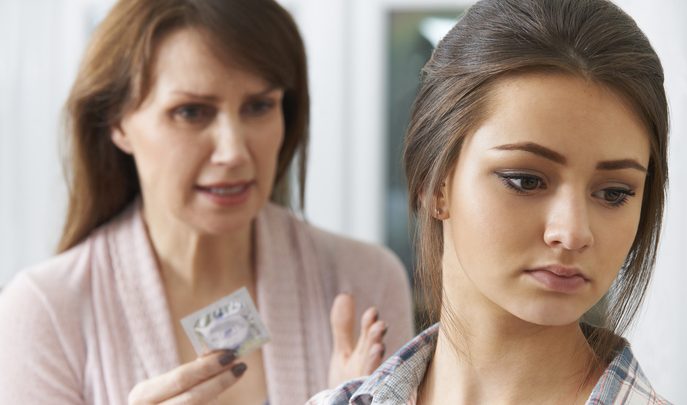How Should Schools Involve Parents With Their SRE Provision?

The best way to ensure that students get to benefit from effective sex and relationships education is for schools to work in close partnership with parents and carers, says Vanessa Rogers…

Some parents and carers find it very difficult to talk to their children about sex and relationships and are perfectly content to leave this to professional educators. Others hold the opposite view, believing that it is solely their right and responsibility to educate their children about sex, as and how they see fit.
This right is upheld to a certain extent by the Department for Education, with only core elements of SRE being statutory, allowing those with parental responsibility to remove their children from the rest if they choose.
Research suggests that the most effective way for young people to learn about the birds and the bees (and all the bits in between) is not at either end of this scale, but within a learning partnership developed between home and school. This approach recognises that those with parental responsibility have a wealth of expertise and experience to draw on, and are likely to know how their child will respond best.
Working together and pooling the knowledge and skills of both parents and teachers creates a more equal partnership, enabling and encouraging young people to learn in school with reinforcement of the same clear, consistent messages at home.
Inviting parents (or those with parental responsibility) into school to inform them of the topics that will be covered, producing information sheets and sending letters home that give a curriculum outline can all help to allay fears and clarify the purpose of SRE learning.
Online and mobile safety
Parents are encouraged to set boundaries on internet use at home, using the security settings available on shared devices and regularly checking web histories to view lists of most visited sites. While accepting that children’s mobile phones are often ‘off limits’ to parents, and that they are entitled to a level of privacy in terms of texts and messaging via social media, it is worth taking the opportunity to point out that having pornographic images on a phone is illegal – even if both parties consented or if the subject is unknown, as is the case with downloaded content.
When offering a general guide to assessing if a picture is appropriate or not, parents might like to suggest that their child consider if it is a picture they would be happy sharing with a grandparent or older relative. While this is a light-hearted approach that should raise a smile, the message behind it is clear and might encourage young people to hesitate and think again before uploading pictures.
Encourage parents to keep communication channels open, so that they can ask about any noticeable differences in the volume of texts their child sends and/or receives, and discuss the risks of photo sharing. Other strategies include offering to help with setting up social media accounts and choosing a profile picture without being seen to pry or ask awkward questions.
A genuine interest can encourage openness and contribute to young people believing that they have someone to turn to should things go wrong. Taking the opportunity to discuss issues in an everyday way is likely to be far more effective than sitting down to have a ‘big talk’ about pornography, which can be embarrassing for all concerned.
That way, the message received is that children can talk openly to the adults they live with, meaning that if they are worried, they are more likely to ask them for help or advice.
Using the media
Parents can create opportunities to check out values and attitudes by looking out for media reports relating to indecency and pornography – for example, young couples prosecuted for sending and receiving naked photos of each other, or TV storylines that involve characters vulnerable to abusive or manipulative relationships.
These all provide great starting points for parents to talk about choices made and to share concerns about potential consequences. Soap operas in particular often have storylines that mirror current concerns, and watching them together at home can make it easier to talk about difficult topics in the third person, while reinforcing positive messages to keep young people safe and happy.
Simply keeping open the lines of communication in a non- judgemental and unemotional way demonstrates to young people that their parents understand some of the issues and are willing to listen. Having ‘what if?’ conversations should make it easier if it becomes necessary to have real ones.
Ultimately what most young people need is the reassurance that if they make a mistake or get into a difficult situation there is an adult they can rely on for advice, information and support at home. A useful resource to help with this is ‘Let’s work together: A practical guide for schools to involve parents and carers in sex education‘, available to download from the Sex Education Forum.
Managing parental concerns
Many parents/carers are concerned about the easy access to porn that the internet and smart phones allow their teenagers, and are horrified if they discover that their child is one of the many thousands who has viewed it.
As well as being a bit of a taboo subject, one issue is that unlike other complex social ‘firsts’ experienced during the teen years, social media in its current form was not around when many parents were the same age, so they have no personal experience on which to draw. Add to that the barrage of worrying stories in the news, and it is unsurprising that parents – especially those not confident using digital technology – are left feeling alarmed and a bit helpless.
For young people to participate fully in SRE lessons it may be necessary to obtain parental consent, especially within an environment that does not have any statutory powers. In schools, this might already be covered by existing consent given for PSHE lessons, but it is good practice to advise parents (and young people) what is going to be covered and the intended learning outcomes, along with a consent form for parents to read, sign and return.
Hosting an open evening or workshop that offers practical support to parents/carers and an opportunity to see the teaching materials that will be used, plus information and advice on how to broach this complex subject at home, can help to allay any fears they may have. These could include worries that discussing porn might actually encourage young people to use it more, or introduce them to things they don’t yet know.
During the parent/carers information workshop, educators should be prepared to answer questions about what will be covered and how. Schools may want to consider preparing a handout that details how this new topic fits into existing schemes of work.
This would aim to reassure parents that pornography will be raised in an age-appropriate way that is professional, supportive and ethical as part of a properly planned SRE or PSHE curriculum. Reinforce that no pornographic or inappropriate material will be shown at any time, under any circumstances.
Finally, consider offering the contact number of a named person in school and a time slot when parents can call for an update on learning or to share any concerns.
All schools should have a PSHE or SRE policy that can be shared with parents on request to have a deeper understanding of the topics within the curriculum. This should describe what the point of it is, and how it supports young people to learn social and emotional skills for life. There should also be opportunities scheduled into the school year for parents to be updated about their child’s learning.
Outside support
Consider signposting parents to the additional services listed below, making it clear that no responsibility can be taken for the content or advice given by outside organisations:
• Young Minds Parents Helpline – 0808 802 5544 (free for mobiles and landlines) Offers free, confidential online and telephone support, including information and advice, to any adult worried about the emotional problems, behaviour or mental health of a child or young person up to the age of 25
• Relate: Parenting Teenagers – 0300 100 1234 A free confidential online and telephone support service for parents concerned about their teens’ substance misuse, relationships or behaviour
• Mermaids – 0208 123 4819 Family and individual support for children and teenagers with gender identity issues
• Family Planning Association The FPA provides an SRE factsheet for parents on how to talk to their child or teenager about sex and relationships
 Extracted from the book We Need To Talk About Pornography by Vanessa Rogers, published by Jessica Kingsley
Extracted from the book We Need To Talk About Pornography by Vanessa Rogers, published by Jessica Kingsley
Vanessa Rogers is a PSHE Consultant, trainer and author; for more information, visit www.vanessarogers.co.uk or follow @vryouthwork












